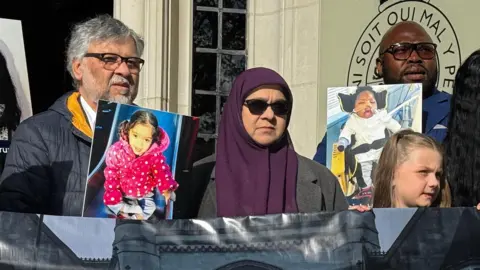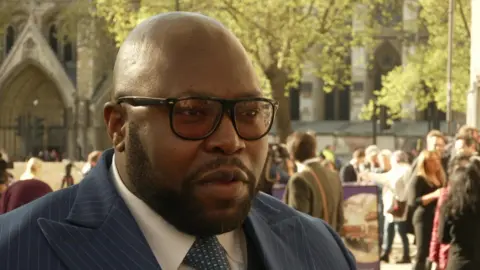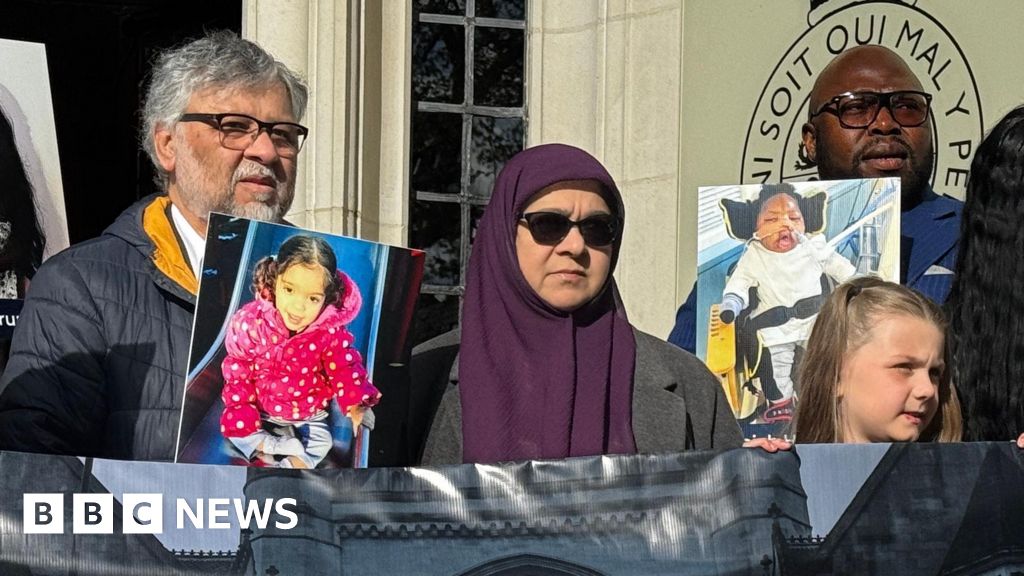BBC News
BBC News, North East and Cumbria
 BBC
BBCDoctors in two end-of-life cases can be named, the Supreme Court has ruled, after the parents of two children said they wanted to “tell their story”.
Isaiah Haastrup, aged 12 months, and six-year-old Zainab Abbasi were at the centre of life support treatment disputes at the High Court in London before their deaths in 2018 and 2019 respectively.
During the proceedings, court orders were put in place barring doctors involved in the children’s care from being publicly named indefinitely.
Giving the ruling, President of the Supreme Court Lord Reed said the need for restriction of freedom of speech must be “established convincingly”, and that it was not by the NHS trusts in the case.
Isaiah suffered “catastrophic” brain damage after being deprived of oxygen at birth and died in March 2018.
Outside the court, Isaiah’s father Lanre Haastrup said the decision would “benefit the public at large”.
“The court has emphatically stated no doctor can hide.”

Zainab’s parents Rashid and Aliya Abbasi had raised concerns over the care at Newcastle’s Great North Children’s Hospital.
Their daughter was born with a “rare and profoundly disabling” inherited neurodegenerative condition and died in September 2019.
Her mother Dr Abbasi said: “If something goes wrong, you should stand up and say, ‘Yes, this went wrong.’
“I can’t imagine how much NHS money has been spent on this court case.”
Zainab’s father Dr Abassi added: “The story is going to be told.”
Unanimous dismissal
A Court of Appeal ruling in 2023 – allowing the clinicians to be named – was challenged by the two trusts involved, Newcastle Upon Tyne Hospitals NHS Foundation Trust and King’s College Hospital NHS Foundation Trust.
The case was heard at the UK’s highest court in April 2024.
The Supreme Court unanimously dismissed the appeal.
In the written judgment, Lord Reed and Lord Briggs said: “Weight can be given to the importance of protecting the medical and other staff of public hospitals against unfounded accusations and consequent abuse.
“However, the court should also bear in mind that the treatment of patients in public hospitals is a matter of legitimate public interest.”
The court also declined an application from the trusts to continue the injunction for a further 21 days.
Lords Reed and Briggs said: “A reasonable duration would be until the end of the proceedings and, in the event that they terminate with the child’s death or the grant of the declaration sought, for a subsequent cooling off period.”
The justices ruled that the doctors’ rights could not be asserted on their behalf and that the claim had to be brought by the clinicians themselves.
Additional reporting by PA Media
Read full article at source
Stay informed about this story by subscribing to our regular Newsletter




